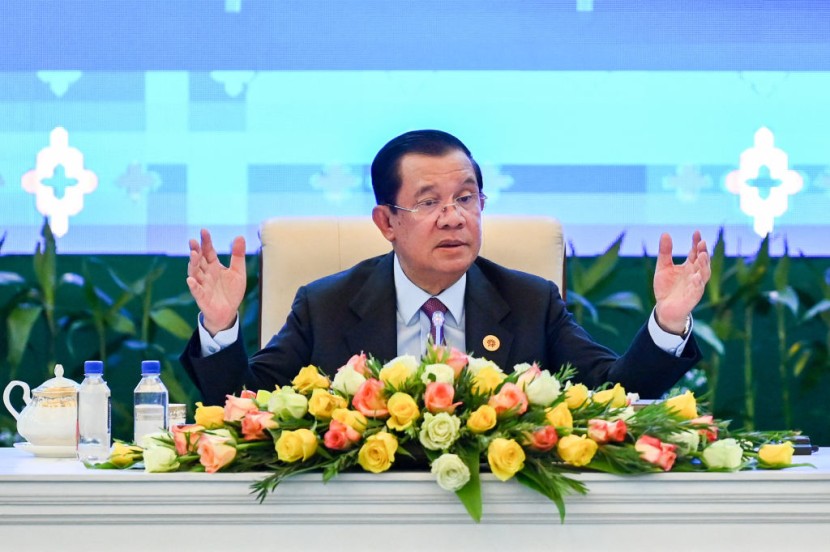Hun Sen, the Prime Minister of Cambodia and one of the world's longest-serving leaders, has declared that he would step down from his position and pass the leadership torch to his son at the beginning of August.
In a special broadcast on national television, he stated: "I would like to ask for understanding from the people as I announce that I will not continue as prime minister."
Three days after a completely uncompetitive election, in which his party once again won every seat, he made the long-awaited announcement.
Retirement From Almost 40 Years in Power

After almost 40 years in power, Cambodia's 70-year-old leader Hun Sen has grown more authoritarian. His oldest son, Hun Manet, who was the head of the Royal Cambodian Army until very recently, had been groomed for the position for quite some time.
Hun Sen said that his son will become prime minister on August 10, CNBC reported.
During the broadcast, he said that he would be leaving office because there could be instability. However, he will continue to serve as the head of the Cambodian People's Party (CPP).
Earlier on Wednesday, July 26, official Cambodian media showed Hun Sen going to the Cambodian monarch's palace to announce the dynastic succession.
According to BBC News, his 45-year-old son Hun Manet played a pivotal part in campaigning for the July election this year and was often seen at rallies with his father, who has controlled the Southeast Asian country of 16 million people since 1985.
See Also : Spain's Left-Wing Coalition Celebrates as Right-Wing Party Fails To Win Majority in Parliament
'Neither Fair nor Free'
The recent election in Cambodia was largely seen as inevitable due to the elimination of the only viable opposition party. Both the US and the EU issued comments denouncing the election as being "neither fair nor free."
There were 17 further parties on the ballot, but they were all either too small, new, or affiliated with the CPP to be taken seriously by voters.
In recent years, Hun Sen has been systematically eliminating political opponents in Cambodia as part of a larger attack on civil space, according to BBC.
After years of defeating his opponents, in 2017, he utilized the courts to dissolve the CNRP, another prominent opposition party, and either imprison or exile its leaders.
He has also been more repressive against criticism and free speech, closing down the majority of the country's independent media. Threats of closure have been reported by various rights organizations, labor unions, and other groups.
Some believe that Hun Manet will lead a less repressive regime and be more receptive to Western calls on human rights than his father. Yet, experts claim he has not shown any signs of becoming more open. Also, Hun Sen has made it very obvious that he would maintain extensive control over the country's administration.
© 2026 HNGN, All rights reserved. Do not reproduce without permission.








